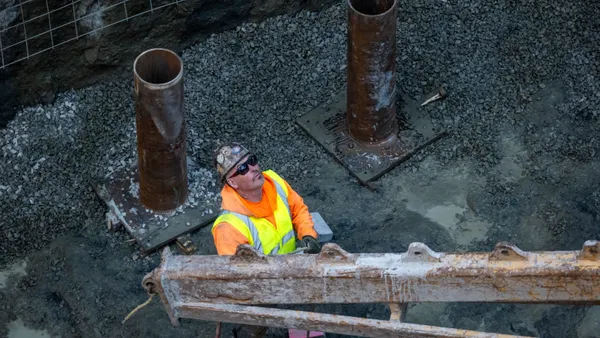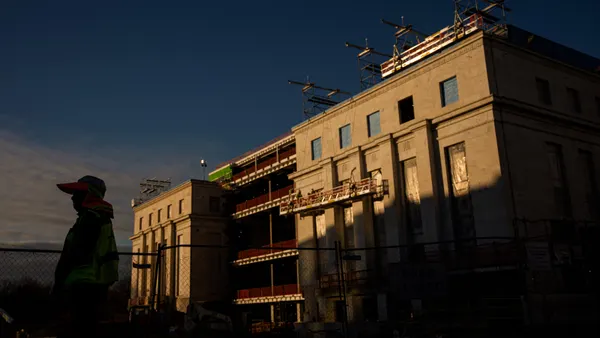Dive Brief:
-
Despite the push by President Donald Trump and Republicans to cut funding for the U.S. Department of Transportation's Transportation Investment Generating Economic Recovery (TIGER) grants, the agency has allocated another $500 million for the program.
-
Selections for the discretionary grants will prioritize rural projects that improve infrastructure, connect to regional economic centers and generally support economic growth.
-
The grants range in size from $5 million to $25 million, though grants awarded to projects in rural areas have a $1 million minimum. Applications are due Oct. 16, 2017, and they are available through September 2020.
Dive Insight:
The TIGER program's fate is pending the 2018 budget talks slated for later this month. So far, however, the industry has pushed back on the suggested cut. That's in part because Trump, who campaigned on increasing infrastructure investment, has yet to reveal significant details on his administration's plan to make good on that proposal.
What information has been revealed so far indicates that $200 billion in federal spending, which Trump called for in his 2018 budget proposal, will be used as seed money for an additional $800 billion in private spending.
As for what projects will be first in line for those federal funds, the administration earlier this year put together a list of 50 projects it believes to be of national importance. That list includes Amtrak's Gateway Program, a new national air traffic control system and a $12 billion rail line connecting Dallas and Houston. To be selected, projects must be substantially ready to break ground, have strong job-creation potential and have significant use for American manufacturing.
Some are concerned that smaller projects, particularly in rural areas, will not be able to lure the private investment needed to have a shot at federal money. This summer, the DOT retooled its FASTLANE program under the name INFRA (Infrastructure for Rebuilding America) with a focus on rural infrastructure projects and others that aren't sure bets for private investors. The change, however, reduces the program's budget from $4.5 billion over five years to $1.5 billion.
In a meeting with state and local transit officials earlier this month, DOT Secretary Elaine Chao said that while the ability to garner private investment will be key to securing federal dollars, rural projects and those that use new technology are still on the table.














